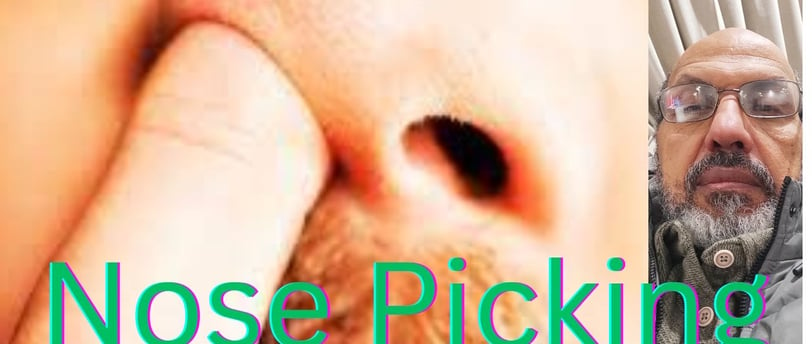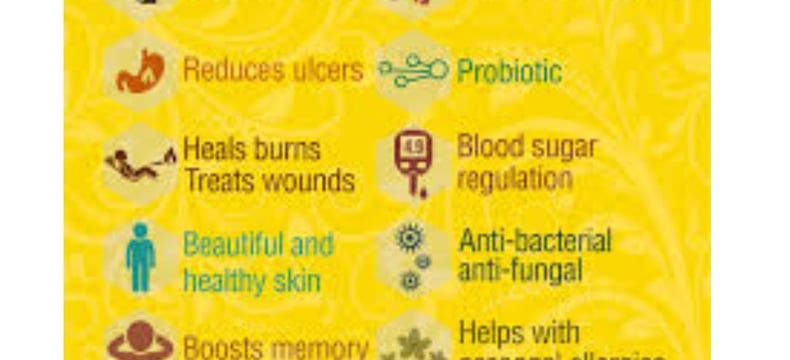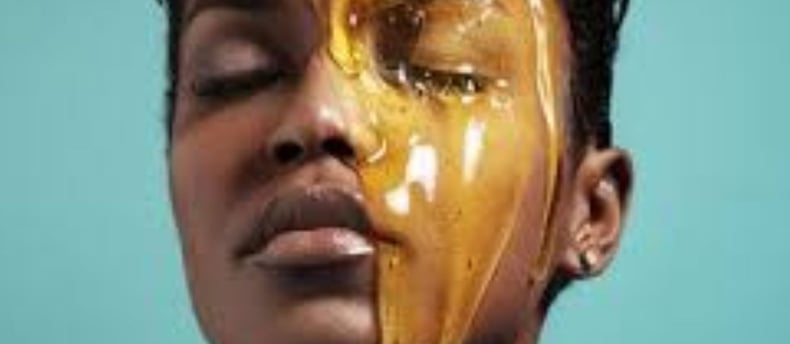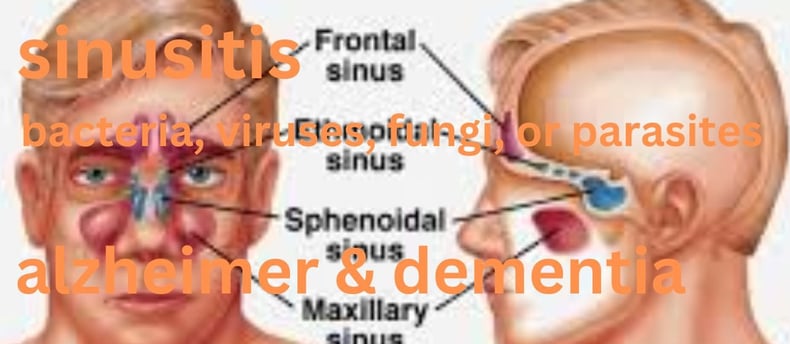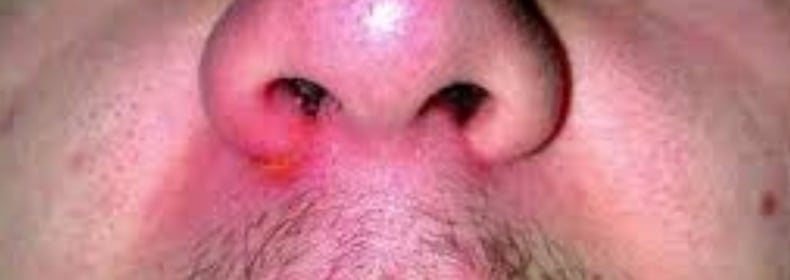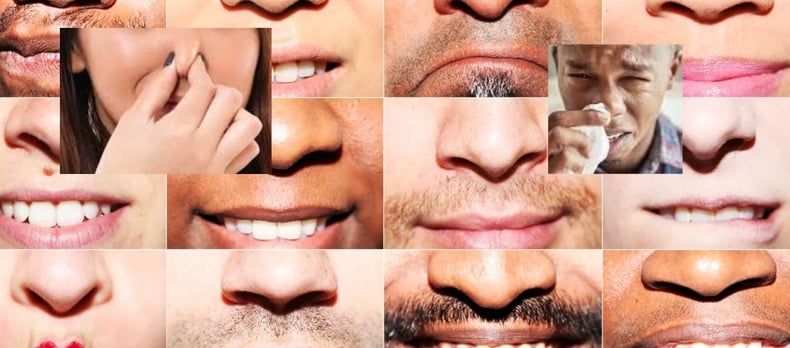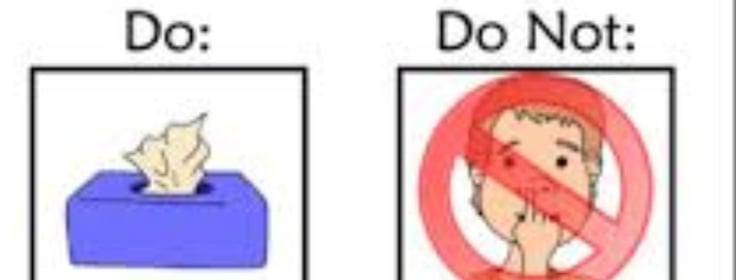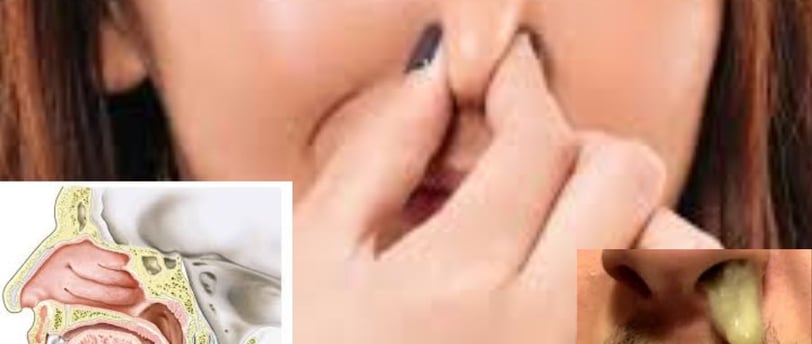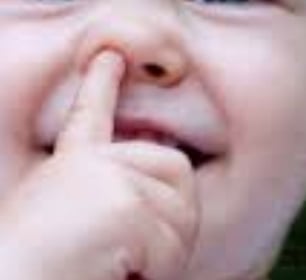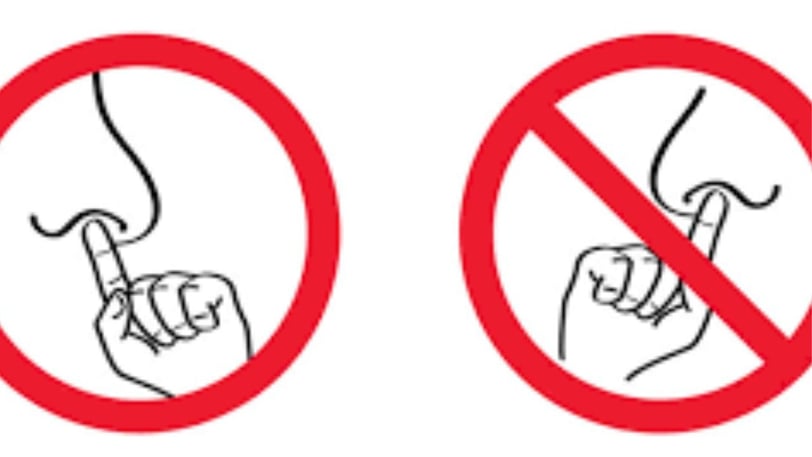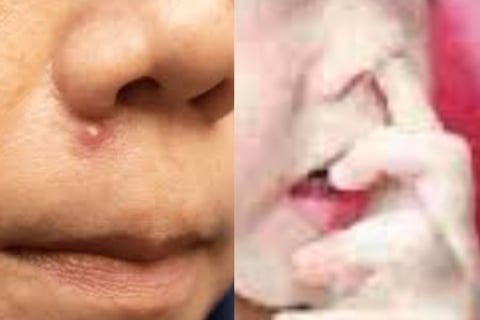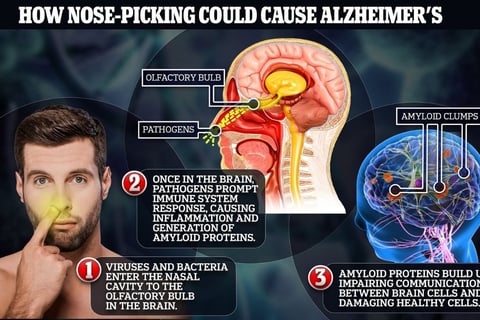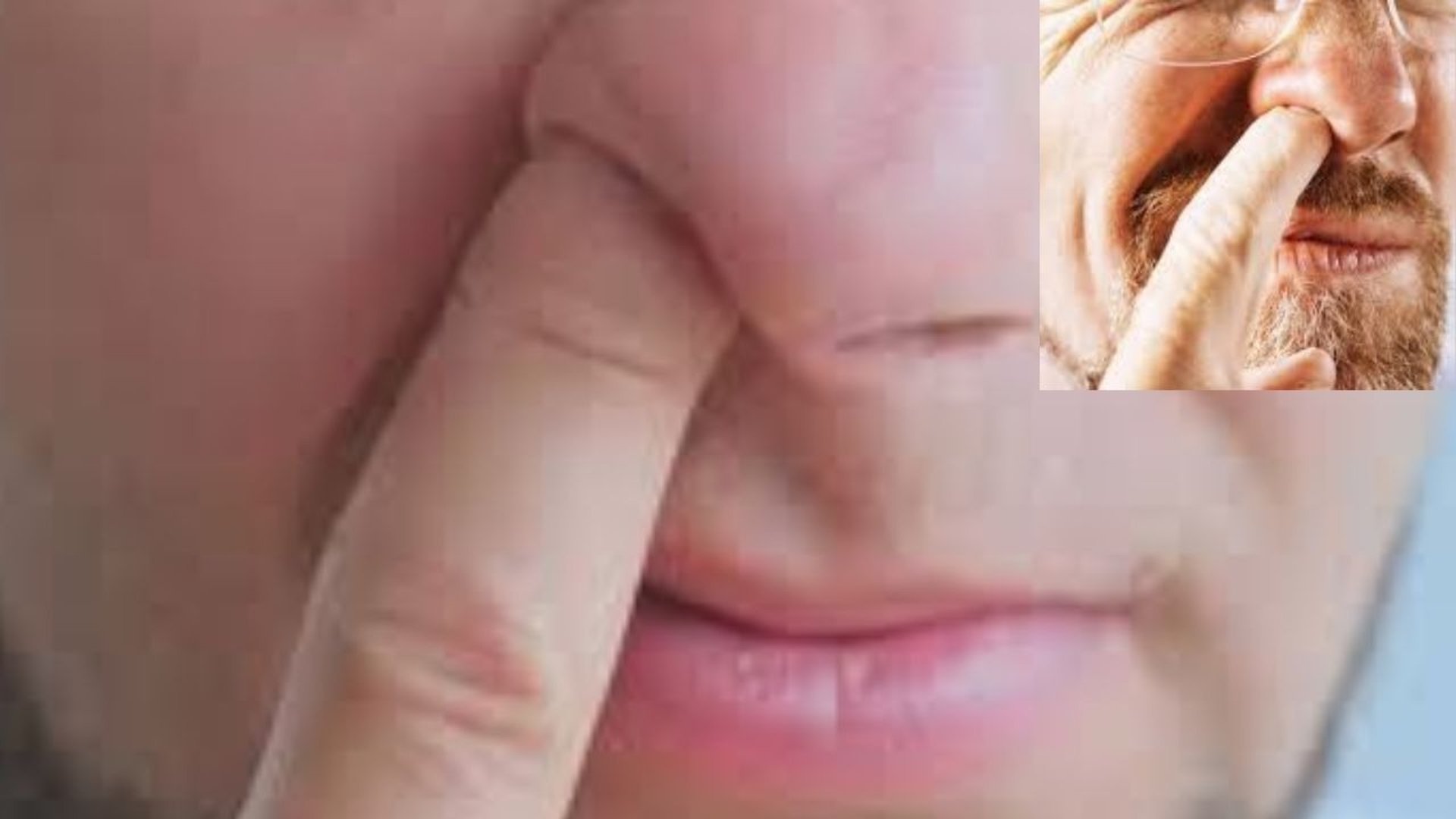
Nose Picking : The Hidden Health Risks
Discover the hidden health risks of nose picking and learn effective strategies to break the habit. Understand why this common behavior can be harmful and find tips to overcome it for better health.
EAR NOSE AND THROATS OTOLARYNGOLOGY
Dr Hassan AlWarraqi
Nose Picking : The Hidden Health Risks and How to Break the Habit
Nose Picking Health Risks and Prevention
is an annoying habit and a health risk
It is a common behavior known as nose picking, nose picking, or nose grunt
The person inserts his finger into his nose to remove mucus or crusts
Causes of nose picking
Feeling itchy or irritated: A person may resort to picking his nose to get rid of the feeling of itching or irritation resulting from nasal dryness, allergies, or sinusitis.
anxiety: Picking your nose may become a behavioral habit to get rid of, stress, or anxiety.
Habit: Children may start picking their noses out of curiosity, then it becomes an established habit over time.
Obsessive-compulsive disorders: In some rare cases, nose picking may be a sign of obsessive-compulsive disorder.
Risks of picking your nose
Spreading germs: This habit may spread germs from the nose to the hands and then to other surfaces, which increases the risk of infection.
Nosebleeds: Picking your nose may irritate the nasal mucosa, which may cause nosebleeds.
Nose wounds: Vigorous nose picking may cause wounds to the nasal mucosa, which may increase the risk of infection.
Enlarged nostrils: Repeated nose picking may lead to permanently enlarged nostrils.
Tips to prevent nose picking
Keep the nose moist: Use a topical ointment or saline spray to keep the nose moist and prevent dryness and itching.
Treating allergies and sinusitis: If your nasal picking is caused by allergies or sinusitis, it is important to treat these conditions to reduce itching and irritation.
behavioral alternatives: If nose picking is a result of boredom or anxiety, try to find alternative activities
Seek professional help: If nose picking is a habit that is difficult to control or is causing problems in your life, consult a doctor or psychotherapist.
Avoid picking your nose in public places, as this is inappropriate behavior and may spread germs.
If you have to pick your nose, do it in a private place and wash your hands well afterward
Nose picking is a cause of sinusitis
Infection is the invasion of an organism by microorganisms such as bacteria, viruses, fungi, or parasites, causing disease.
A Potential Role of Nose-Picking in Pathogen Entry via the Olfactory System alzheimer & dementia
Types of infection:
Bacterial infections: Caused by bacteria, such as strep throat, pneumonia, and urinary tract infections.
Viral infections: caused by viruses, such as the common cold, influenza, and AIDS.
Fungal infections: Caused by fungi, such as yeast infections and athlete's foot.
Parasitic infections: Caused by parasites, such as tapeworms and malaria.
Some symptoms include fever, chills, fatigue, muscle aches, loss of appetite, nausea and vomiting, diarrhea, cough, nasal congestion, sore throat, and rash.
Wash your hands regularly: especially after using the bathroom, before eating, and after touching animals or contaminated surfaces.
Avoid close contact with sick people: If you are sick, stay home and avoid contact with others to avoid spreading the infection.
Cover your mouth and nose when coughing or sneezing: Use a tissue or your inner elbow to cover your mouth and nose, then dispose of the used tissue immediately.
Get vaccinations: There are many vaccines available that help prevent infectious diseases, such as influenza, measles, and hepatitis B.
Practice healthy habits: Eat a healthy diet, get enough sleep, and exercise regularly. These factors help strengthen your immune system and resist infection.
Pushing mucus up: Picking your nose may push germ-laden mucus up into the respiratory tract, which may increase the risk of sinus infections.
There are many other factors that contribute to infections, such as allergies, colds, and other respiratory infections.
Not all people who pick their noses frequently become infected.
Infection can be prevented by following good hygiene practices, such as washing hands regularly and avoiding close contact with sick people.
Keep your nose moist: Use a topical ointment or saline spray to keep your nose moist and prevent dryness and itching.
Treating allergies and colds: Allergies and colds can increase the risk of infection, so it is important to treat these conditions appropriately.
Nose picking and honey bee role
The role of honey from a scientific perspective: Some of honey's natural properties may provide potential benefits that may indirectly help reduce the desire to pick one's nose
1. Antibacterial properties: Honey has naturally antibacterial properties, which may help soothe and heal any irritation or inflammation in the nasal passages caused by frequent nose picking.
2. Humectant effects: Honey's humectant properties have the ability to attract and retain moisture, which may help keep the nasal lining moist and prevent dryness and irritation that may cause nasal stuffiness.
3. Anti-inflammatory effects: Honey contains anti-inflammatory properties that may help reduce inflammation in the nasal passages, which may relieve the discomfort that leads to nasal picking.
4. Soothes and protects: Thanks to its thick texture, honey may coat and protect the irritated nasal lining, providing a soothing sensation that may discourage the urge to pick your nose.
Some additional tips that may help reduce nose picking:
Identify triggers: Pay attention to situations or factors that increase your desire to pick your nose, such as deep breathing or meditation,. Try to find healthy ways to deal with these triggers.
Keep your hands busy: If you find yourself picking your nose out of habit, try keeping your hands busy with other activities, such as using distraction toys or stress balls.
Practice mindfulness: Mindfulness techniques, such as deep breathing or meditation, can help increase your awareness of your urge to pick your nose and give you a chance to stop and choose a different behavior.
Seek professional help: If nose picking is significantly affecting your daily life or causing you emotional distress, consider.Seek professional help from a therapist or behavioral specialist.
keywords
Nose picking, annoying habit, health risks, causes, risks, prevention, cause of sinusitis, infection, properties of bee honey, reduction, prevention,deep breathing ,or meditation,of honey's natural properties ,may provide potential benefits that may indirectly help ,reduce the desire to pick one's nose,
Nose Picking: The Hidden Health Risks and How to Break the Habit
Nose picking is a common yet often overlooked habit that many people engage in, whether out of curiosity, boredom, or to relieve nasal discomfort.
While it may seem harmless, this seemingly innocuous behavior can have serious health consequences, ranging from infections to long-term nasal damage. In this article, we’ll explore the causes, risks, and prevention strategies for nose picking, as well as its potential connection to fasting and the surprising role of honey in mitigating its effects.
What Causes Nose Picking?
Nose picking, medically known as rhinotillexis, can stem from various physical and psychological factors:
Nasal Discomfort: Dryness, allergies, or sinus infections can cause itching or irritation, prompting individuals to pick their noses for relief.
Stress and Anxiety: For some, nose picking becomes a subconscious coping mechanism during moments of stress or anxiety.
Habitual Behavior: Children often pick their noses out of curiosity, and the habit may persist into adulthood if not addressed.
Obsessive-Compulsive Disorder (OCD): In rare cases, excessive nose picking may be linked to OCD or other psychological conditions.
Understanding the root cause of nose picking is the first step toward breaking the habit and preventing its associated risks.
The Hidden Dangers of Nose Picking
While nose picking might seem trivial, it can lead to several health complications:
Spread of Germs: Your hands come into contact with countless bacteria and viruses throughout the day. When you pick your nose, these pathogens can enter your nasal passages, increasing the risk of infections.
Nosebleeds: The delicate tissues inside the nose can easily become irritated or damaged, leading to frequent nosebleeds.
Nasal Wounds: Aggressive picking can cause small cuts or abrasions in the nasal lining, creating an entry point for bacteria and increasing the risk of infection.
Sinus Infections: Pushing mucus and germs deeper into the nasal passages can lead to sinusitis, a painful condition characterized by inflammation and infection of the sinuses.
Enlarged Nostrils: Chronic nose picking can cause permanent changes to the nasal structure, such as enlarged nostrils.
Nose Picking and Fasting: A Surprising Connection
Fasting, particularly during religious practices like Ramadan, can sometimes exacerbate nasal dryness due to dehydration.
This dryness may increase the urge to pick the nose to relieve discomfort.
Nose picking in fasted patients has less danger than non fasting ones .
To minimize this risk:
Stay Hydrated: Drink plenty of water during non-fasting hours to keep your nasal passages moist.
Use Saline Sprays: These can help maintain nasal moisture and reduce irritation.
Address Underlying Issues: If allergies or sinusitis are contributing to nasal discomfort, seek appropriate treatment.
How to Break the Habit of Nose Picking
Breaking the habit of nose picking requires a combination of self-awareness, behavioral changes, and proper nasal care. Here are some effective strategies:
Keep Your Nose Moist: Use saline sprays, nasal ointments, or a humidifier to prevent dryness and itching.
Treat Underlying Conditions: If allergies, sinusitis, or other nasal issues are triggering the habit, address these conditions with the help of a healthcare professional.
Find Alternatives: Replace nose picking with healthier habits, such as using a stress ball, fidget toy, or practicing deep breathing exercises.
Practice Mindfulness: Techniques like meditation or mindfulness can help you become more aware of the urge to pick your nose and choose a different behavior.
Seek Professional Help: If nose picking is compulsive or causing significant distress, consider consulting a therapist or behavioral specialist.
The Role of Honey in Reducing Nose Picking
Honey, a natural remedy with numerous health benefits, may indirectly help reduce the urge to pick your nose.
Here’s how:
Antibacterial Properties: Honey can soothe and heal irritated nasal tissues, reducing the need to pick.
Humectant Effects: Its ability to retain moisture helps keep the nasal lining hydrated, preventing dryness and itching.
Anti-Inflammatory Effects: Honey’s anti-inflammatory properties can reduce nasal inflammation, relieving discomfort.
Soothing and Protective: The thick texture of honey can coat and protect the nasal lining, providing a soothing sensation.
To use honey for nasal care, mix a small amount with warm water and use it as a nasal rinse or apply a diluted solution to the nasal passages with a cotton swab.
or use the honey non diluted as it is directly or to the nasal passages with a cotton swab ,
Preventing Infections Caused by Nose Picking
Nose picking can introduce harmful bacteria into the nasal passages, increasing the risk of infections like sinusitis.
To prevent infections:
Wash Your Hands Regularly: This reduces the transfer of germs to your nose.
Avoid Picking: Use tissues or nasal irrigation to clean your nose gently.
Seek Medical Attention: If you experience symptoms like persistent nasal congestion, facial pain, or thick discharge, consult a healthcare provider.
Conclusion
Nose picking may seem like a harmless habit, but it can have serious consequences for your health.
From spreading germs to causing sinus infections, the risks are real.
By understanding the causes and adopting preventive measures, you can break the habit and protect your nasal health.
Whether it’s staying hydrated during fasting, using honey to soothe nasal tissues, or seeking professional help for compulsive behavior, there are many ways to address this issue.
Remember, taking small steps to break the habit of nose picking can lead to significant improvements in your overall well-being.
Nose picking is a common habit with potential health risks, including sinus infections, nosebleeds, and nasal wounds, Causes include nasal dryness, allergies, sinusitis, anxiety, and even obsessive-compulsive disorders,Risks involve spreading germs, pushing mucus deeper into the respiratory tract, and irritation of the nasal lining, Preventive measures include keeping the nose moist with saline sprays or ointments, treating allergies and sinus issues, adopting behavioral alternatives, practicing mindfulness, and seeking professional help if necessary, Honey's natural antibacterial, anti-inflammatory, and moisturizing properties ,may also help soothe the nasal passages and reduce the urge to pick, Prioritizing good hygiene, avoiding close contact with sick individuals, and practicing healthy habits can further prevent infections, associated with this behavior,
Frequently Asked Questions About Nose Picking
What are the reasons behind nose picking?
Several factors may lead to the habit of nose picking, including:
Nasal discomfort: Dryness, allergies, or sinus infections can cause itching or irritation, prompting individuals to pick their noses for relief.
Stress and anxiety: Nose picking may serve as an unconscious coping mechanism for stress or anxiety.
Habitual behavior: Children often start picking their noses out of curiosity, which may develop into a habit if not addressed.
Obsessive-Compulsive Disorder (OCD): In rare cases, excessive nose picking may be linked to OCD or other psychological conditions.
What are the health risks associated with nose picking?
Although it may seem harmless, nose picking can lead to serious health complications, such as:
Germ transmission: Bacteria and viruses on the hands can enter the nose, increasing the risk of infections.
Nosebleeds: The delicate tissues inside the nose can be easily damaged, leading to frequent nosebleeds.
Nasal wounds: Vigorous picking can cause small cuts or scratches in the nasal lining, creating entry points for bacteria.
Sinus infections: Pushing mucus and germs deeper into the nasal passages may cause sinus inflammation and infections.
Widened nostrils: Chronic nose picking can lead to permanent changes in nasal structure, such as enlarged nostrils.
How does fasting increase the urge to pick your nose?
During fasting periods, particularly in Ramadan, nasal dryness may increase due to dehydration.
This dryness can lead to discomfort, which may heighten the urge to pick the nose for relief.
What are effective ways to overcome nose picking?
Overcoming nose picking requires a combination of self-awareness, behavioral changes, and proper nasal care.
Effective strategies include:
Keeping the nose moist: Use saline sprays, nasal ointments, or a humidifier to prevent dryness.
Treating underlying conditions: Address allergies, sinus infections, or other issues causing nasal discomfort.
Finding alternatives: Replace nose picking with healthier habits, such as using a stress ball or practicing deep breathing.
Practicing mindfulness: Techniques like meditation and mindfulness can increase awareness of the urge and help redirect behavior.
Seeking professional help: Consult a therapist or behavioral specialist if nose picking is compulsive or causing significant distress.
How can honey help reduce nose picking?
Honey has natural properties that may indirectly reduce the urge to pick your nose:
Antibacterial properties: Honey soothes and heals irritated nasal tissues, reducing the need to pick.
Moisturizing effects: Honey helps maintain moisture in the nasal lining, preventing dryness and itchiness.
Anti-inflammatory properties: Honey reduces inflammation, alleviating discomfort in the nose.
Soothing and protective effects: Honey coats and protects the nasal lining, providing relief and reducing irritation.
How can honey be used for nasal care?
Mix a small amount of honey with warm water and use it as a nasal rinse.
Apply a diluted honey solution to the nasal passages using a cotton swab.
How can infections from nose picking be prevented?
To avoid infections resulting from nose picking, follow these steps:
Wash your hands regularly: Minimize germ transfer to the nose.
Avoid picking: Use tissues or nasal rinses to clean the nose gently.
Seek medical care: If you experience symptoms like persistent nasal congestion, facial pain, or thick discharge, consult a doctor.
Why is addressing nose picking important for overall health?
Though seemingly harmless, nose picking can negatively impact overall health by increasing the risk of infections, sinusitis, and nasal tissue damage.
By adopting preventative measures or seeking professional help, individuals can improve their health and prevent potential complications associated with this habit.

